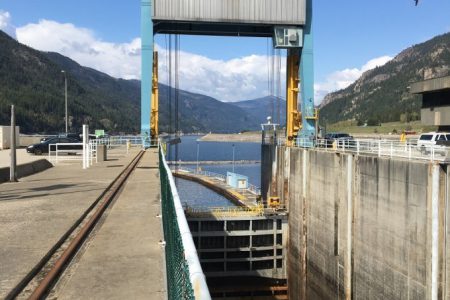Canada, U.S. reach agreement-in-principle to modernize Columbia River Treaty
The Government of Canada and the United States have taken an important step in the modernization of the Columbia River Treaty by reaching an agreement-in-principle (AIP). Today’s milestone in the negotiation process provides a clear road map for the negotiation teams to move forward on drafting the renewed treaty and for B.C. to begin engaging with the Columbia River Basin residents to seek feedback on the AIP and on next steps.
For decades, the Columbia River Treaty has played a crucial role in reducing flood damage and providing clean energy to millions of households, businesses and industries in both Canada and the United States. Under the AIP, the countries have agreed that a modernized treaty will provide some level of assured pre-planned flood control and continued co-operation on hydropower for the Columbia River. The countries have also agreed to incorporate new provisions not considered in the original agreement, including those for increased unilateral flexibility for how B.C. operates its treaty dams, ecosystem health, restoring and strengthening salmon populations, Indigenous cultural values, adaptive management and new collaborative engagement on Libby Dam operations. These added provisions reflect the interests voiced by B.C. Columbia Basin residents, local governments and Indigenous Nations over more than a decade of engagement with the Province of British Columbia.
Since 2012, the Province has been connecting with people to hear their concerns about the original treaty and their views about how it could be improved. Columbia Basin residents have shared their thoughts, including through more than 50 community meetings and information sessions, letters and phone calls with provincial staff. There has also been regular engagement with the Columbia River Treaty Local Governments Committee and the Columbia Basin Regional Advisory Committee, two groups with members from across the Basin that have been providing suggestions and advice on what a modernized treaty could look like. This work has helped ensure that Basin interests have been well-represented throughout the discussions about a modernized treaty.
Canada and B.C. have been working in close partnership over the past six years, and their relationship with the Ktunaxa, Secwépemc and Syilx Okanagan Nations has helped shape Canada’s priorities, objectives and negotiating positions for the AIP. The three Indigenous Nations continue to provide valuable contributions toward the modernization of the treaty and continue to be instrumental in leading efforts to integrate ecosystem health, Indigenous and Tribal cultural values into a modernized treaty, and restore salmon into the B.C. portion of the Columbia Basin. Canada and B.C. also recognize the importance of continuing to work in partnership with the three Indigenous Nations on domestic issues that affect their communities.
The AIP supports a renewed approach to sharing benefits between countries. It enables B.C. to continue receiving a share of the additional hydroelectric power potential in the U.S. as a result of how B.C. operates its treaty dams, and includes newly negotiated access to U.S. transmission infrastructure. It also provides annual indexed compensation from the U.S. for a reduced volume of reservoir space for flood-risk management and for other benefits the U.S. receives, including benefits to irrigation, navigation, recreation and fish-population enhancements in the U.S. portion of the Columbia Basin.
In the coming weeks, the governments of Canada and B.C. will share more detailed information about the AIP and about future engagement with the basin communities to seek their feedback.
“Modernizing the Columbia River Treaty is a once-in-a-generation chance to look beyond the original treaty’s goals of power generation and flood-risk management,” said Katrine Conroy, B.C. Minister Responsible for the Columbia River Treaty. “We said all along that we would not agree to an updated treaty unless it led to improvements in the B.C. basin and reduced impacts to the region’s ecosystems and communities. Canada, B.C. and the Ktunaxa, Secwépemc, and Syilx Okanagan Nations have worked hard together over the past six years to ensure our negotiations with the U.S. uphold that principle. As a lifelong basin resident, I’m proud to say this agreement-in-principle is a key step forward towards a modernized treaty that achieves those goals, reflecting the voices of basin communities and Indigenous Nations.”

























Comments